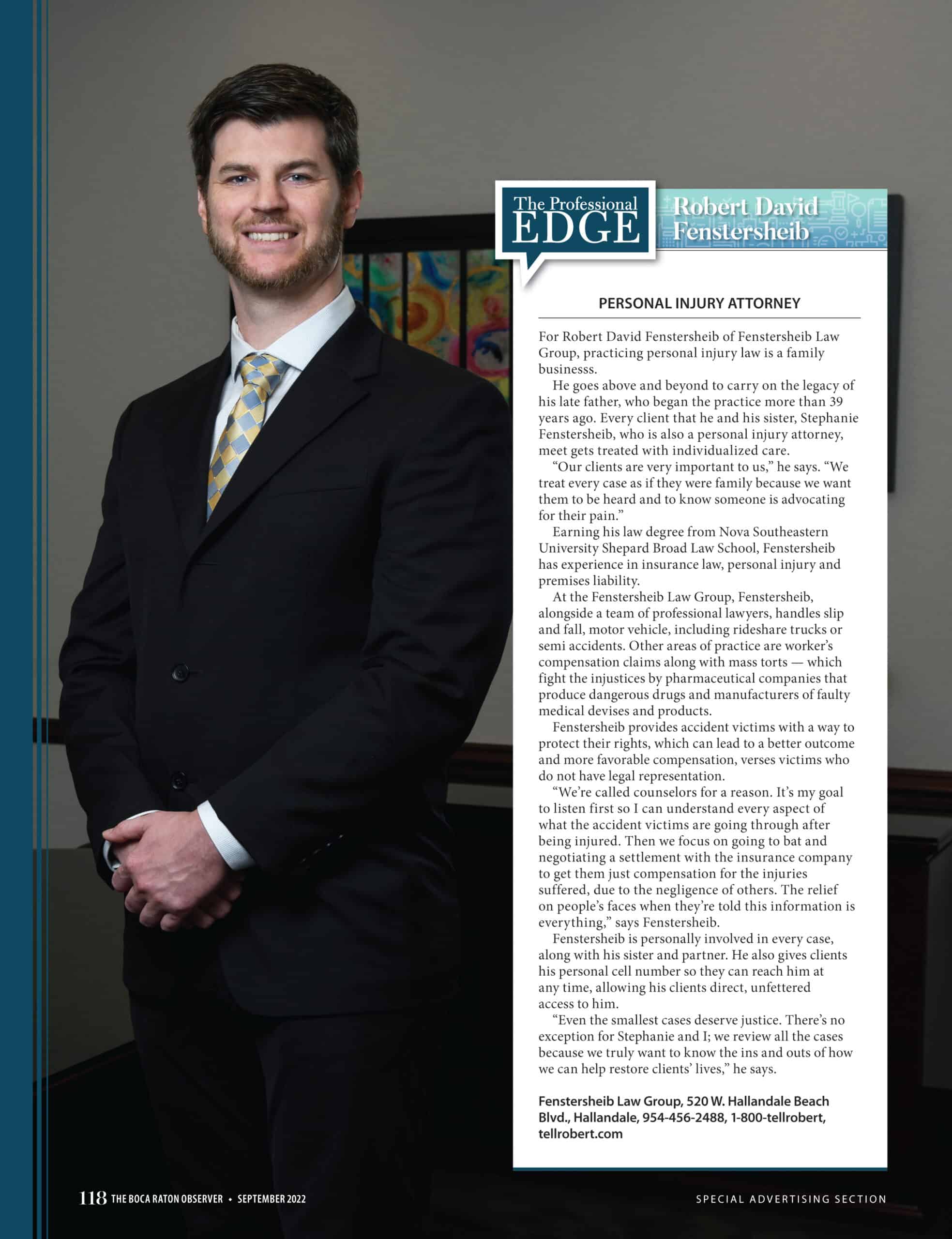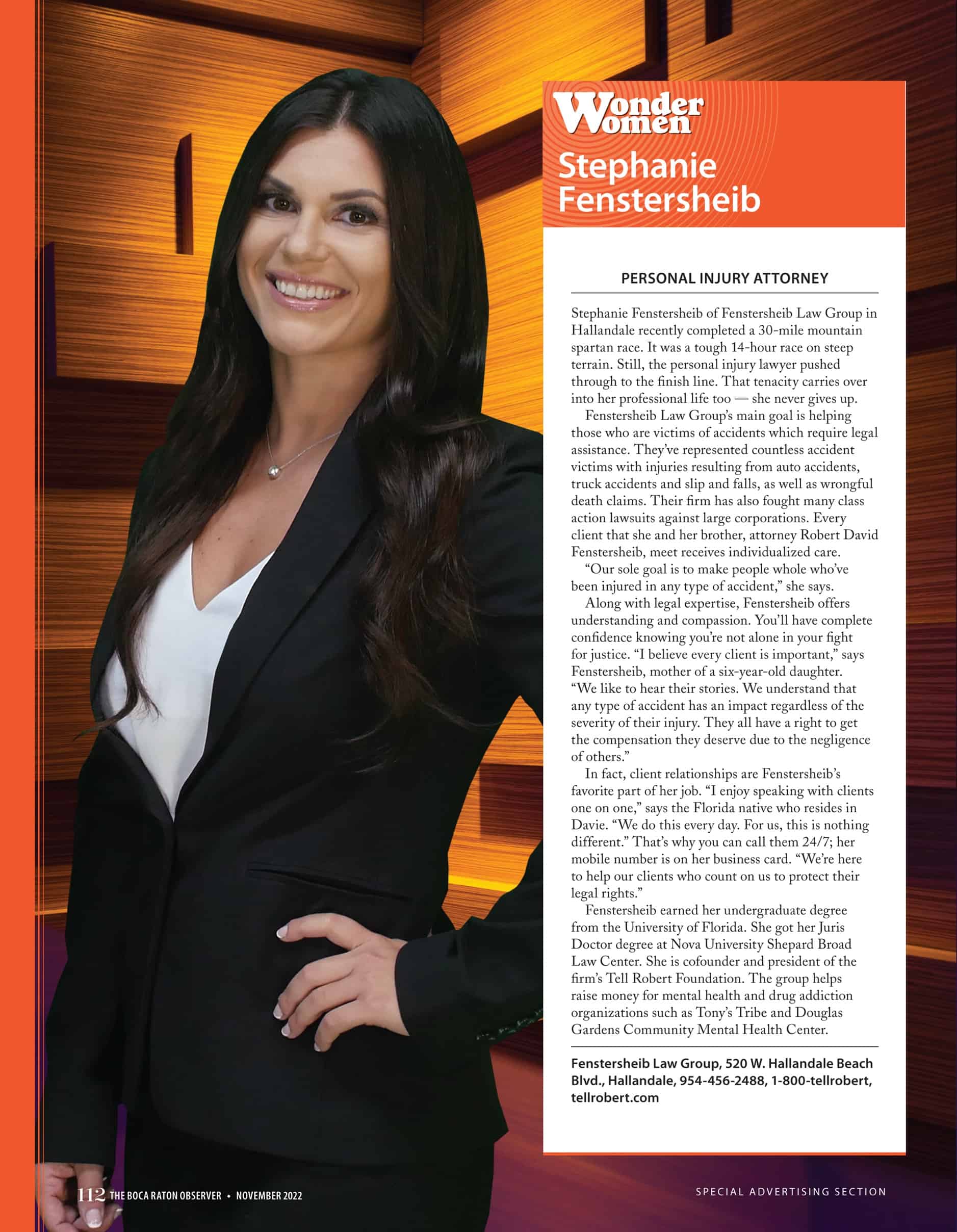 When people consider the aftermath of a rideshare accident, they typically imagine cuts, broken bones, or other common physical injuries. However, not all harm can be seen. Many survivors of serious car crashes find that the most impactful and lasting wounds are the ones that are never displayed on an X-ray screen.
When people consider the aftermath of a rideshare accident, they typically imagine cuts, broken bones, or other common physical injuries. However, not all harm can be seen. Many survivors of serious car crashes find that the most impactful and lasting wounds are the ones that are never displayed on an X-ray screen.
Emotional and psychological injuries like post-traumatic stress disorder (PTSD), depression, panic attacks, or chronic anxiety can be just as debilitating as physical discomfort. This can interfere with your ability to work, disrupt relationships, create sleep problems, and make life feel like a daily battle.
In Florida, the law recognizes the reality of mental and emotional trauma. While compensable injuries, proving these conditions often requires a careful approach that goes beyond documenting physical damage. Unfortunately, insurance companies may attempt to downplay or deny the impact of psychological injuries, especially if they aren’t backed by thorough medical documentation and expert testimonies. For this reason, it is important to understand how Florida treats mental health claims after rideshare accidents so you can secure the support you need to live a happy, healthy life.
In this article, we cover how mental health injuries are addressed under state law, the kinds of evidence needed to support your claim, how treatment records and professional evaluations contribute to the credibility of your case, and why working with an attorney who is familiar with both physical injury and psychological harm can help you maximize compensation.
Understanding Mental Health Injuries After A Rideshare Accident
While physical injuries like whiplash and broken bones are most commonly associated with car accidents, psychological harm can be equally serious and long-lasting. Mental health issues often develop in the days, weeks, and months after the incident, with the potential to persist long after the body has healed. This can impact one’s ability to work, maintain healthy relationships, and enjoy daily life.
In Florida, the legal system recognizes so-called “invisible injuries” as legitimate grounds for compensation – as long as there is documentation available that links the condition to the accident.
Common Psychological Effects Of Uber And Lyft Crashes
Rideshare accidents can be traumatic, especially for passengers, pedestrians, and cyclists who were not expecting a strong impact. Common psychological repercussions include:
- Post-Traumatic Stress Disorder (PTSD): Nightmares, flashbacks, and avoidant behaviors are all symptoms of PTSD.
- Anxiety and Panic Attacks: Individuals may experience a heightened fear of driving or riding in vehicles.
- Depression: Loss of interest in activities, hopelessness, and persistent sadness can occur in accident victims.
- Disturbances in Sleep: Insomnia or recurring nightmares can plague people involved in vehicle collisions.
- Hypervigilance: Constantly feeling “on edge” or expecting danger can inhibit the normal functioning behavior of many victims.
All of these symptoms can disrupt one’s social life, work, and overall health – often requiring professional therapy and a long-term treatment plan.
How Florida Treats Emotional And Psychological Trauma
According to Florida law, emotional and psychological trauma is recognized as a compensable injury for those pursuing a claim. In order to recover damages, an attorney must show that the mental health condition was caused or significantly worsened by the accident. State courts often rely on psychiatric evaluations, expert testimony, and medical records to make this connection.
While you don’t always need a physical injury to seek legal action, the presence of one can strengthen the credibility of claims of psychological harm in many situations.
When Do Mental Health Injuries Qualify For Compensation?
Mental health injuries may qualify for compensation if they meet key criteria such as:
- Causation: A clear link between the rideshare accident and the psychological condition.
- Diagnosis: A licensed mental health expert must diagnose the condition.
- Impact: The condition must affect daily life, work, or relationships in significant ways.
Compensation can cover losses like therapy expenses, medication, missed days at work, and other bills linked to pain and suffering.
Evidence That Matters When Proving Mental Health Injuries
Given the fact that mental health injuries aren’t visible, specific evidence plays a crucial role in proving the reality of your claim. Foundational documentation includes:
- Medical and therapy records that show diagnosis, treatment, and progress.
- Expert opinions from psychiatrists, psychologists, or other licensed professionals.
- Personal journals outlining symptoms, triggers, and the emotional impact of the accident.
- Testimonies from friends and family describing changes in behavior, mood, or daily functioning from an up-close perspective.
- Work records demonstrating absences or decreases in performance.
The stronger the evidence, the better chances you have of mitigating insurers’ attempts to dismiss your claim.
Why Insurance Companies Often Dispute Psychological Injury Claims
Insurance companies often do everything possible to question psychological injury claims due to the fact that these conditions are more difficult to quantify than physical injuries. Adjusters may argue that your symptoms were preexisting or entirely unrelated to the accident. They may also attempt to downplay your suffering or offer a low settlement because they know that proving emotional harm is more challenging.
How A Personal Injury Attorney Can Strengthen Your Case
A trusted personal injury attorney can make all the difference between a denied claim and maximum compensation. With a legal professional by your side, you will have help gathering medical records and expert reports, have access to skilled negotiation skills, and a fearless advocate in court.
In the context of rideshare accident cases, attorneys also provide insight on how to navigate the multitude of insurance policies involved – always ensuring no potential sources of compensation are overlooked.
Your Rights And Next Steps Toward Recovery
If you’re struggling in the wake of a rideshare accident in Florida, you have the right to seek compensation for your mental health injuries. The next steps you should take include seeking proper mental health treatment, documenting your symptoms, and getting in contact with a personal injury attorney.
Remember: the sooner you act, the stronger your case will be. With the right legal support and medical care behind you, you can start heading toward restoring your quality of life while holding negligence accountable.
Experiencing PTSD After A Rideshare Vehicle In Florida? Fenstersheib Law Group, P.A. Is Here To Help
Give your mental health the financial support it deserves. At Fenstersheib Law Group, P.A., we are dedicated to helping victims of rideshare accidents obtain full compensation for their losses.
At Fenstersheib Law Group, P.A., we are no strangers to the complexities of rideshare accident claims – especially when they surround issues like PTSD. If you’re seeking legal representation that has your best interests at heart, you’ve come to the right place. With years of experience in the field, our team is prepared to provide you with comprehensive legal support aimed at promoting both your mental and physical health.
Fenstersheib Law Group, P.A. offers advanced legal services to individuals across Florida. Our main office is located in Hallandale Beach, which provides a central location for our legal services. We also operate secondary offices throughout the state to better serve our clients, including Hollywood, Miramar, Fort Lauderdale, West Palm Beach, Orlando, Sarasota, Tampa, and Jacksonville (by appointment only).
Want to get started with a strategic plan of action? You can schedule your initial consultation by calling 1-833-TellFLG (1-(954) 231-6123) today!




